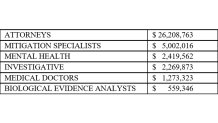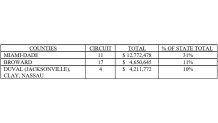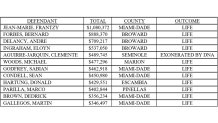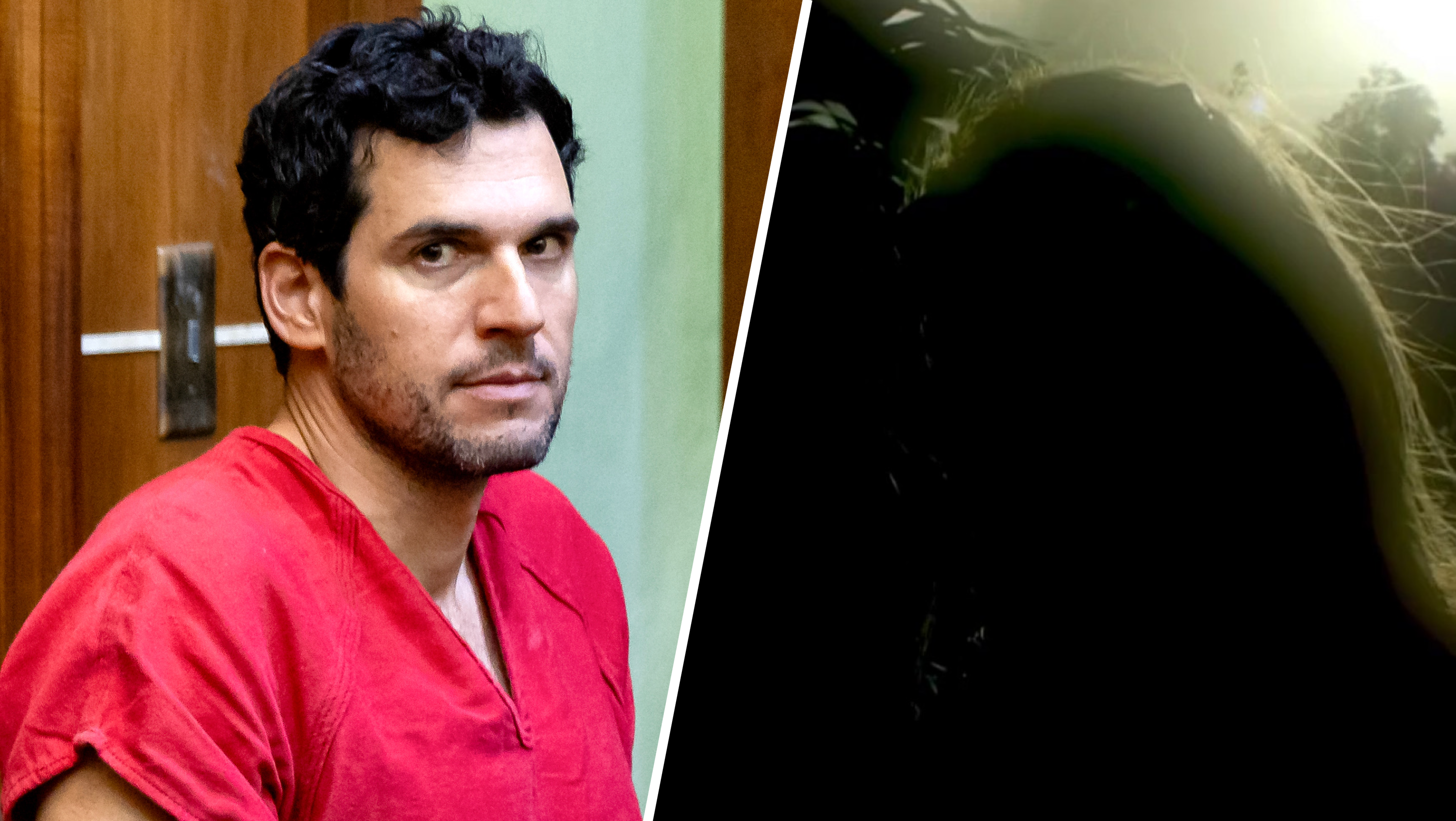Florida is one of 27 states that, along with the federal government, have the death penalty as an option for adults who commit first-degree murder, according to the Death Penalty Information Center.
Three of those states – California, Oregon and Pennsylvania – have governor-imposed moratoriums on the death penalty.
Watch NBC6 free wherever you are
>With 304 inmates on death row as of Nov. 5, Florida has the largest death row of any state with an active death penalty.
Since the death penalty was reinstated in 1976, Florida has executed 99 people – fourth behind Texas (573), Oklahoma and Virginia (both 113).
Get local news you need to know to start your day with NBC 6's News Headlines newsletter.
>Florida has executed 30 inmates in the last 10 years and none since 2019.
Florida leads the nation in the number of death row inmates who have been removed from death row after presenting evidence of innocence, according to the DPIC. Under its definition, the DPIC counts 30 such cases since 1973; Illinois is second in that category, with 21 such cases.
Following the money
Investigations
NBC 6 Investigates gets results
It is impossible to determine exactly how much money is spent prosecuting, defending, investigating, trying and appealing all death penalty cases in Florida.
They involve a mix of courts, government employees – including public defenders and regional conflict counsel – and, where defendants can afford them, private counsel. The public agencies do not account for how much of their budgets are devoted to such cases, or much more they may cost them compared to cases where death is not sought.
But the NBC 6 Investigators were able to analyze how much death penalty defense costs taxpayers in a subset of cases.
Among other things, the state’s Justice Administration Commission (JAC) pays attorneys fees and costs for death penalty defendants who are both unable to pay for their own defense and whose cases present conflicts that preclude public defenders and other state-salaried lawyers from acting as their counsel.
The following involves court-appointed attorneys and the vendors assisting them – medical doctors, investigators, forensic scientists, mitigation specialists, court reporters and the like – who submit invoices to the JAC for reimbursement.
We obtained data from 18,727 invoices paid by the JAC between Jan. 1, 2018, and Sept. 22, 2021 in cases where the state was seeking a death penalty at the time the attorneys were appointed.
Among the findings:
- A total of $41,062,855 was paid out, an average of nearly $920,000 a month.
- 92 percent of it was attributed by the JAC to the following categories:

- The cases involved 552 defendants (including some for whom the state ultimately chose not to seek death penalties), but only 57 of them consumed more than half the total spent.
- Nearly one-third of the money was spent on cases in Miami-Dade County, one of three judicial circuits whose cases consumed most of the expenditures:

- Among the 12 most expensive cases statewide that have been resolved, only one resulted in a death sentence – and that conviction was thrown out and the case dismissed after DNA and other evidence showed the person convicted was innocent.

Those 12 defendants consumed more than $6.6 million of the funds spent in the study period.
Three of them – Bernard Forbes, Andre Delancy and Eloyn Ingraham – were charged with the same crime, the 2006 ambush murder of Broward sheriff’s deputy Brian Tephford.
Together, their defense cost taxpayers more than $2.1 million. They were sentenced to life in prison in July 2018.
For more information:
Florida Department of Corrections
http://www.dc.state.fl.us/ci/deathrow.html#General
Death Penalty Information Center
https://deathpenaltyinfo.org/



